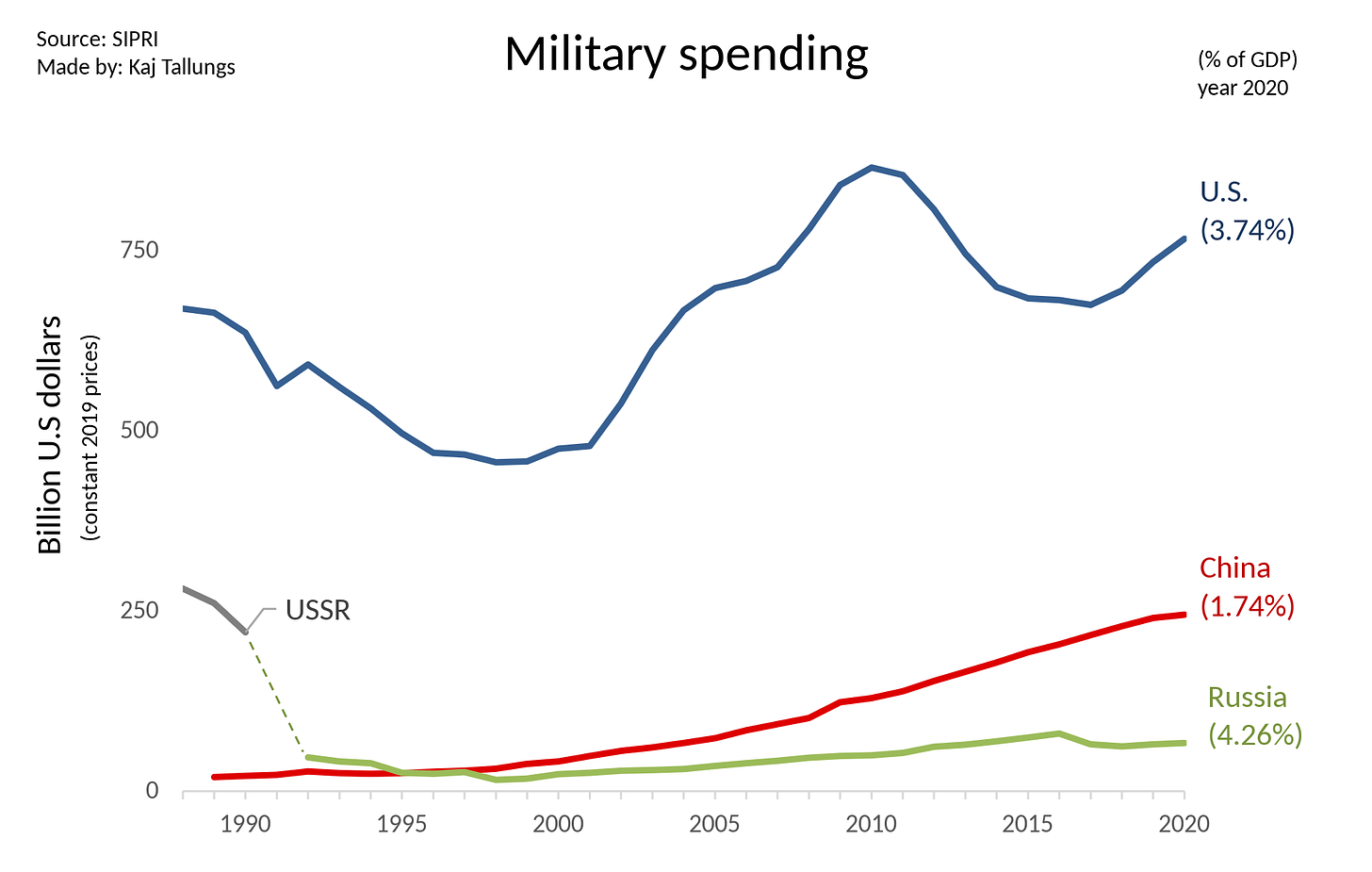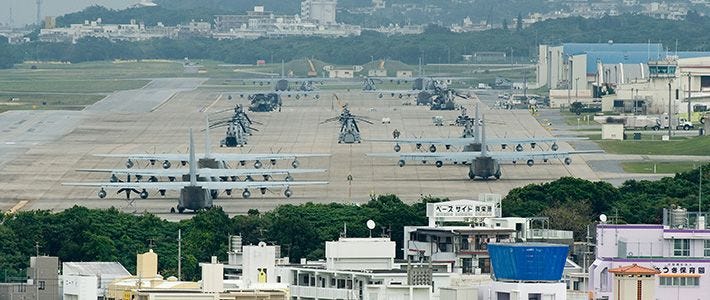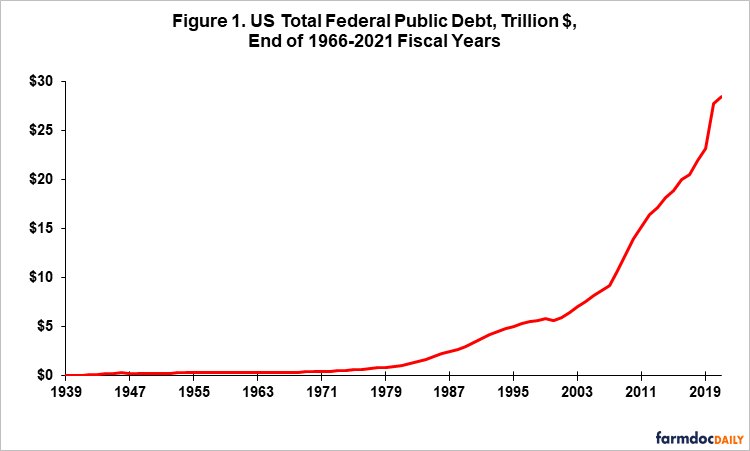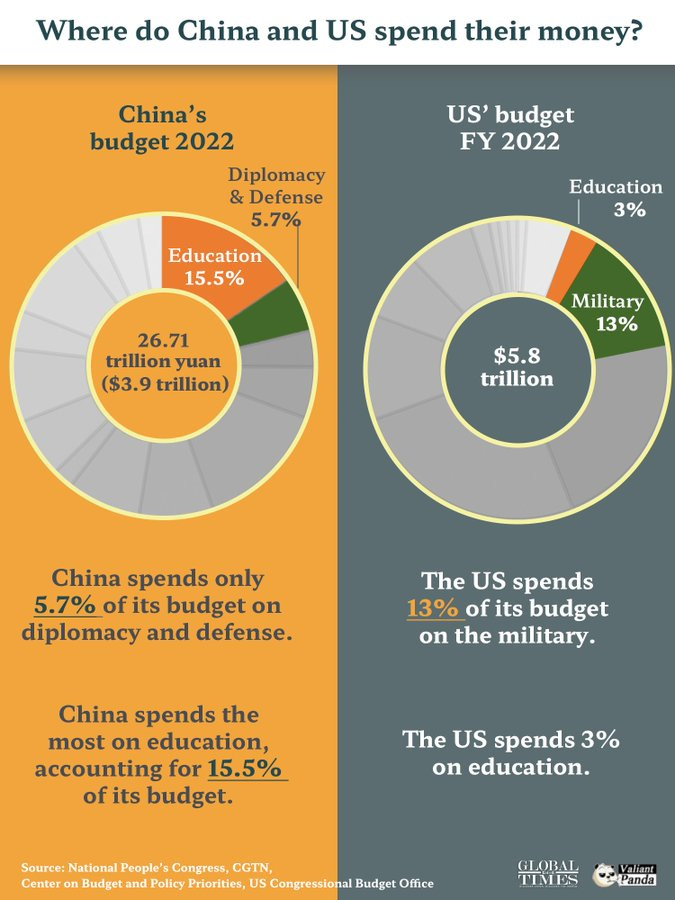US cannot win a war with China or Russia
Mar 11
Journalistic Dumpster Diving
A recent WSJ article “The U.S. Is Not Ready for the Era of ‘Great Power’ Conflict” by Michael R. Gordon has caught the attention of the Internet, perhaps because it is behind a paywall and has a catchy title— which encourages commentators on various websites. Paywalls are great teases. And titles are bait hiding a hook.
I got to read the whole thing despite my relative poverty — thanks to Twitter where there was a link to the article in entirety. Yup—a freebie. Or maybe you can think of it as media dumpster diving.
As usual, with such articles, as you work your way through journalistic throwaways, the equivalent of almost palatable slices of pizza, the good stuff is always at the bottom. It’s kinda fun.
In this case, the takeaway is that the US is not ready for war with China and/or Russia — and never will be. Also that the US military is not set up for war with anyone really— just to make a lot of money for a few big corporations.
Proof? At the time of writing, Biden has just done proposing the biggest military budget in history—to counter China— which really poses no threat to the US.
The biggest threat to the US is the US itself.
A Man Named Clint
Mike Gordon is a pretty entertaining writer. Like many other mainstream media writers, he catches the readers’ attention with real-life personal drama and a real-life hero.
Every story about the military needs a hero and this time his name is Clint.
No, not Clint Eastwood, Clint Hinote, whose path to success began in Iraq where he was originally assigned as a lowly, somewhat geeky major in the AirForce. We’ve all seen this show before.
Clint Hinote returned from a deployment in Baghdad in the spring of 2018 to a new assignment and a staggering realization.A classified Pentagon wargame simulated a Chinese push to take control of the South China Sea. The Air Force officer, charged with plotting the service’s future, learned that China’s well-stocked missile force had rained down on the bases and ports the U.S. relied on in the region, turning American combat aircraft and munitions into smoldering ruins in a matter of days.
My response was, ‘Holy crap. We are going to lose if we fight like this,’” he recalled.
The officer, now a lieutenant general, began posting yellow sticky notes on the walls of his closet-size office at the Pentagon, listing the problems to solve if the military was to have a chance of blunting a potential attack from China.
Oh my…. Clint had a closet-sized office, even though now a general.
Geeky Clint-- like most of today’s teenagers-- likes games. Only his are wargames and “classified”, which means they are secrets—ooooooh . Mind you, he is pretty open about them to the WSJ.
Pretty cool, huh. (Not to worry, the WSJ has a paywall to keep spies out.)
In any case, Clint moved up in the world —presumably gave up sticky notes for PowerPoint – and got his very own “classified” game. How cool is that?
In 2019, Gen. Hinote, using his new authority in the Air Force’s future war office, organized another classified wargame. The simulation postulated a Chinese attack on Taiwan and assessed how two U.S. forces might fare in contesting it: an “outside force” made up entirely of long-range U.S. bombers and missiles, and an “inside force” of aircraft, ships and troops that would fight within the range of Chinese planes and missiles.The conclusion was that neither approach would succeed on its own.“We needed a mix to protect Taiwan and Japan,” he said. “Ever since, we have been gaming, simulating and experimenting to determine that mix.”
Like I said, we’ve seen this show before. Our hero is a mover and a shaker. Despite all previous games, his new game showed the US could win (sorta): “I think we’ve got a recipe for blunting” a Chinese attack.I just think you have to reinvent your force to do it.”
As a child, I guess Clint really wanted to be a cook. But war is not just like baking a cake.
Chef ClintIt is al in a 5-star restaurant. Chefs get paid a lot. And to sample, Clint’s oeuvre, you need a platinum credit card.
Says, Lt. General Chef Clint:
As we began to push for change, we lost most of the budget battles….There is more sense of urgency now, but we know how far we have to go.”
I don’t recall the Pentagon “losing” many budget battles. Do you?
Certainly not under Biden.
No matter – the article emphasizes urgency. China is threatening us. Soon there will be noodle shops everywhere. Soon, the Chinese will be making everything! Oh, they are already?
Mikey Gordon editorializes:
A China in control of the South China Sea and Taiwan would hold sway over waters through which trillions of dollars in trade passes each year. It would also command supplies of advanced semiconductors, threaten the security of U.S. allies such as Japan and challenge American per-eminence in a part of the world it has dominated since World War II.
Oh my—this is Rome vs Carthage redux. Will there be massacres, rape, and plunder? But I digress—the US has been doing massacre, rape and plunder for years. It’s called “Freedom”.
The Chinese Threat
In journalistic dumpster diving, you need to take your time and a good flashlight, lest you miss something good. Let’s see….
Taiwan is part of China-- even if Beijing does not exercise its rights of sovereign control under the “One Country, Two Systems” policy.
China is also the largest trading partner of both Taiwan and Japan.
It already dominates the market for the low-end computer chips that are the mainstay of industry and the consumer market worldwide. Its market share is increasing in this sector Taiwan dominates the market for high-end chips— but US sanctions are driving the Mainland to invest in R&D in high-end chips —with breakthroughs in high end chips likely a lot sooner than anyone expects.
As we have seen with Russia, sanctions drive innovation and technological progress. and this is where China’s money goes.
So far, China has shown no interest in invading Taiwan.
Why would they want to? (And how can you “invade” your own country?)
Mainland China and Hong Kong accounted for 42% of Taiwan’s exports last year, while the U.S. had a 15% share, according to official Taiwan data accessed through Wind Information.· About 22% of Taiwan’s imports last year came from mainland China and Hong Kong, versus 10% from the U.S., official data showed.·
Invading Taiwan would be just ever so dumb. Like killing a Goose laying Golden Eggs.
But for Americans dumb and dumber is both meme and theme.
Maybe because China is or was getting most of those eggs.
So, the US wants to provoke China to defend its sovereign interests in Taiwan— just as it provoked Russia to defend Eastern Ukraine. And look how that turned out!
Sounds crazy?
The Logic of Illogic
In 2018, the Pentagon issued a National Defense Strategy saying the U.S. would prepare for a new world of “great power competition. “Deterring, a longstanding U.S. partner that Beijing claims as Chinese territory, defines the challenge. Allowing China to take Taiwan, just 100 miles from the Chinese mainland, and then trying to wrest it back, Pentagon officials concluded, would involve the U.S. in a protracted fight and might spur China to escalate to nuclear weapons. The U.S. needed to demonstrate it could prevent Beijing from seizing the island in the first place—a requirement included in the Biden administration’s National Defense Strategy issued in 2022.
Translation: the US needs a “defense” buildup of a size that would make the improbable threat …um… improbable. That means for someone, including General Clint when he retires and moves to the “private sector”.
The argument is disingenuous, even for my two cats Jet and Ichi who are helping me write this thing.
For example, the Americans say that Beijing “claims” Taiwan as Chinese territory despite this “claim” is one that a majority of the world recognizes as fact — including the US ..
Uncle Sam also suggests it would be China who would escalate to nuclear weapons despite being able to take out US carrier groups and bases with hypersonic weapons against which the US has no defense. Russians use of the Kinzhal hypersonic missile in Ukraine shows how that works.
Logically, nuclear escalation would have to come from the US. Unlikely, of course, because even a few Chinese nuke armed subs off the US could destroy most of the country. MAD is called “MAD” for a reason.
Bases
The WSJ article warns that China is building bases in the South China Sea.
These are, as you know, orientally inscrutable —with lots of radar towers and communications facilities. Domes and stuff. Definitely dangerous. Lighthouses too. OK. No fighter aircraft, missile batteries, or bombers that we can see. Which means they are hidden somewhere.
Also, a few of these bases have airfields. And docks where ships could come, even if there is no observable military hardware of any consequence.
These bases are quite different from US bases, which armed to the teeth to serve as supply hubs in a conflict. Remember— offense is the best defense.
In contrast, Chinese bases are primarily observation posts, and also intended to buttress Chinese diplomatic claims over waters in the South China Sea which are contested by just about every country in the region —including the Philippines, which is now home to US bases, set up not to protect Manila but to attack the Chinese.
If the Chinese were to lose its bases to missile strikes, no big deal –there’s really not much there. And they don’t really need them for ISR in the region.
The facilities might be destroyed but islands are hard to sink — unlike US aircraft carriers .
By Jingo the WSJ retorts:
China has increased its spending with the aim of fully being able to take Taiwan by 2027.
Did the Chinese say that? No.
2027 is the Centenary of the Chinese Revolution and the date by which China completes its newest 5 Year Plan to modernize its military, in line with the new concepts of war that Russia has been developing in its operations in Ukraine.
On the contrary —China has consistently maintained that it wants peaceful reunification. The Golden Egg strategy. Something of a cultural tradition a few millenia old as I write here.
As China continues to grow and prosper with BRI, BRICS, and dedollarization while the US and Europe decline, Taiwan’s future would be to go with the winner, their fellow Chinese.
Even the Australian Strategy Policy Institute grudgingly admits that the US is eating Chinese dust, trailing behind.
China leads in 37 of 44 technologies tracked in a year-long project by thinktank the Australian Strategic Policy Institute. The fields include electric batteries, hypersonics and advanced radio-frequency communications such as 5G and 6G.The report, published on Thursday, said the US was the leader in just the remaining seven technologies such as vaccines, quantum computing and space launch systems.
IN fact -while China leads in at least 40 of 44 key technologies since it is recently pulling ahead in vaccines, quantum computing and space launch systems.
The reason? Human capital.
The US cannot really catchup because it doesn’t care about its people. It cares about form not content. Its culture hero is Forrest Gump.
Is the US just dumb?
The US is falling behind badly in almost all areas. It is not only its industrial base that has been hollowed out – but its educational base. The US has a few very bright people, increasingly from places like India, now that the Chinese are no longer coming to the US to study. It also has some very creative people. Just not enough.
The US of A is a country with 4% of the world’s population and 50% of its MBAs. MBA stands for More Bullshit Always.
Russia, with less than half the population has double the number of engineers.
Americans can barely read. And what they read they can barely understand
Nationwide, on average, 79% of U.S. adults are literate in 2022. 21% of adults in the US are illiterate in 2022.54% of adults have a literacy below sixth-grade level.21% of Americans 18 and older are illiterate in 2022.Low literacy rates end up costing Americans up to $2.2 trillion every year.
The US is simply not smart enough to compete with China – now—or, sadly, in the future because it has different priorities. Throwing more money at hi-tech boondoggles won’t help.
China prioritizes human capital —therefore, education. There are many reasons for this — culture, history, ideology and so on — but basically the Chinese and the Russians are practical. They are also realistic — problem-solvers because they have to be. And they learn from their mistakes.
Americans have a kind of national narcissism — with an immense sense of imperial entitlement — they think ideologically, rather than critically and repeat the same mistakes over and over — hoping for different results. Call it madness or call it stupidity. It is the classic failing of all empires.
\
So it is that Michael Gordon rationalizes America’s lack of military competence with a kind of the-dog-ate-my-homework logic. In the WSJ dumpster, this is the stuff you don’t want to eat.
a.) Decades fighting “insurgencies” lulled the Americans into complacency says Gordon. The term ‘insurgency” is a giveaway — it reflects ideology.
Was Korea a “rebellion”? North Vietnam? Iraq? Afghanistan? Libya? Syria? Of course not. But the US sees opposition abroad or dissent at home as “insurrection”— the term also used for the Jan 6 Trumpian New Years Party in the Capitol.
b.) Gordon assigns blame to “big ticket items” that “didn’t pan out”—in other words, accidents, a few very expensive mistakes in technology.
The fact is, however, these “big ticket items” are the rule not the exception— a reflection of an adolescent faith that bigger and fancier and pricier is better.
Almost all of US military kit is over-engineered and too complex, in the end, impractical -- too expensive to use and too expensive to lose—and built for the wars of the past. The F35, Abrams Tanks, and aircraft carriers are good examples.
c.) Gordon adds to his list “Corporate consolidation that left the Pentagon with fewer manufacturers”.
Corporate consolidation = trusts. This is a systemic problem of predatory and monopoly capitalism that again reflects the “bigger is better” meme.
The problem is not the number of manufacturers, however—but rather that profit-hungry companies control defense and procurement policy rather than is the case in Russia and China where the state does it, according to practical need.
As I wrote elsewhere— in my article about American Wunderwaffen—the American corporate mindset is influenced by value-added, planned obsolescence marketing and the primacy of the private sector. Corporations are exploitative and psychopathic. They seek only profit.
Jingoism
In this context, jingoism is good money.
We don't want to fight, yet by jingo if we do,
We've got the ships, we've got the men,
We've got the money, too!
(19th Century, British ditty supporting intervention against Russia in the Russo-Turkish War, from which we get term “jingoism).
The Russians won.
Simply put, the US cannot win a great power war as the country that it is.
What is needed is a new American revolution.
- Forums
- Breaking News
- Redacted interviews Scott Ritter 10 Mar



















